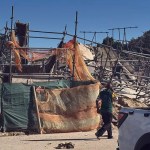As the African Union celebrates its 20th year in operation, across the continent and beyond, various initiatives have reflected on its efforts thus far and identified the opportunities and challenges for future growth. The recent developments in global and African politics, such as Africa’s efforts to combat the Covid-19 pandemic, and the creation of the African Continental Free Trade Area (AfCFTA), all speak to the efforts towards stronger integration and the idea of a stronger Africa.
While there is a consensus on the need for Africa to build its internal capacity and resilience globally, building this is a whole other matter. In a continent divided by 54 states, further divided by provinces, states, local governments and a wide range of groups aligned across religious, ethnic and language interests, among others, where are the points of convergence and commonality when it comes to what this internal capacity development and resilience building will look like? But more importantly, who will drive it and whose responsibility is it?
Unity becomes an important ingredient in creating the Africa of the future, but can those who we expect to unite the continent be relied upon to do so? Can the dividers of the continent become those who build unity? How can unity be achieved if the African state has been captured?
Perhaps those who divide the continent cannot be expected to unite it. Their efforts to divide the continent are seen through their exclusionary politics, corruption and misuse of funds, human rights violations and disregard of vulnerable groups. These failures are not just attributed to African leaders but include its citizens, civil society, academia and communities who in one way or another have contributed to this division. Values like tolerance, respect, selflessness, compassion and ubuntu seem to be waning across these groups.
African agency
One clear thing is that the next 20 years for the AU require looking internally at solving its problems and building human capacity for the development and enrichment of the continent. How can this be done?
The answer is African agency. I refer to the agency as the vast human resource on the continent. This includes young people, women, community-based organisations, African civil society, religious institutions and other African capacities. With a population of 1.1 billion, Africa’s success at integration, economic advancement and prosperity requires harnessing these various capacities maximally.
Read in Daily Maverick: “The African Union at 20 — Burkina Faso and the curse of coups d’état”
Young Africans make up a large percentage of the continent, many of whom are unemployed but have the capacity and resilience to do so much more if given the resources, skills and opportunity. Women are a critical component of the African population who can contribute immensely to developing and improving its economic, political, social, health and security sectors.
Africa’s communities, comprising individuals, small-scale businesses, community-based organisations and civil society, are the spaces for innovation and rapid response to new and evolving threats. In the absence of the state, in some cases, communities have come together to share information, help the needy, respond to food insecurity and crime and find alternative income generation in dire circumstances such as the Covid-19 pandemic. They know their problems best and know the solutions that will bring about sustainable change.
Visit Daily Maverick’s home page for more news, analysis and investigations
Africa’s diaspora community is an extension of the continent. In their various locations and spheres, they have become highly skilled and highly exceptional contributors to their respective fields. While some have returned to the continent to contribute in various ways, others send back remittances that help address poverty and contribute to the continent’s future.
Read in Daily Maverick: “African Union’s dismal peace and security record signals a decline in its authority and overall continental integration”
What is the way forward? There must be a shift to a bottom-up, citizen-led, citizen-inclusive Africa. This requires the domestication of regional laws, reviewing policies and frameworks to ensure that they truly reflect the African experience and reality, and partnerships where Africa takes the lead and determines the modalities of these arrangements.
Grassroots-developed and implemented systems of governance, service delivery and problem solving are the starting point where Africa’s many agents can begin to build their capacity and resilience. DM
















 Become an Insider
Become an Insider